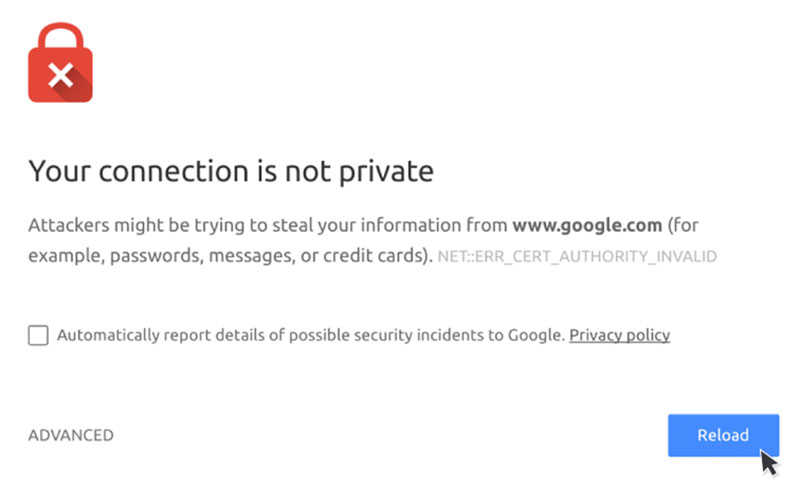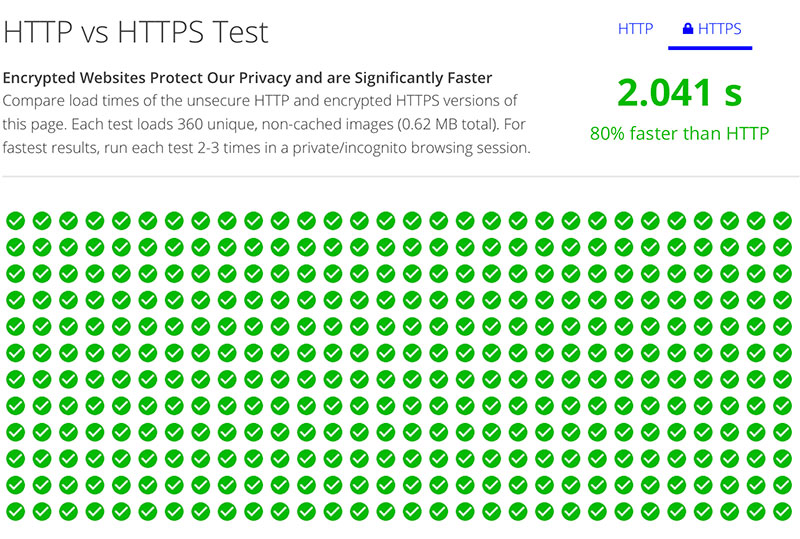Let’s talk about the difference between HTTP and HTTPS?
These days, most sites serve their content via https, which provides a safe, encrypted experience for visitors. Over 90% of websites visited are sites that utilise HTTPS. Most search results are HTTPS according to Google. So, what’s all the fuss about? What’s the difference between HTTP and HTTPS and how do you change it?
Let’s find out exactly what HTTP and HTTPS are.
UPDATE Feb 2, 2022 – this article has increased importance as by September Google Chrome is expected to release an HTTPS-only mode on its browser.
What is HTTP?
HTTP is short for Hypertext Transfer Protocol. In simple terms, it is how information is sent from a user’s web browser to the website they are visiting. A web browser is what you use to search the internet. Some examples are Firefox, Safari and Chrome.
Data communicated between the browser and the website is sent in plain text. So, if a hacker intercepts the connection between the browser and the website, they would be able see the information viewed and sent.
So what? Well, this is potentially risky when users are filling out sensitive information, such as a credit card numbers on an e-commerce store or contact form information.
What is HTTPS?
While HTTPS is the same concept as HTTP, the “S” means one big difference: security. HTTPS stands for Hypertext Transfer Protocol Secure.
HTTPS uses SSL (Secure Sockets Layer) and TLS (Transport Layer Security).
Using HTTPS, information travels through a safe tunnel to its destination. The SSL also encrypts the information being sent. This means that the original content of the data is scrambled and very difficult to be accessed anyone trying to see the information who shouldn’t be. This is important when information such as credit card numbers and/or personal information is being transferred.
How to tell if a site has that extra security of SSL
It’s easy to know if a website has an SSL certificate. Its address begins with https:// in the browser window.
When you visit an HTTPS site, web browsers often display a padlock icon. This shows you that the site is nice and secure. On websites that don’t use HTTPS, you will see a “Not Secure” warning, and possibly an alert triangle with an exclamation mark in it.
You may also see an alert dialogue window asking if you are sure you want to access the site.
What you see will depend on the browser you use. We have included a few images as examples.
What you may typically see with a secure website
What you may typically see with an insecure website
The change to HTTPS
If you haven’t upgraded your website to HTTPS, we recommend that you do so today. How much can you expect to pay for this upgrade? That depends on your host. Sometimes an SSL certificate will incur an extra charge and sometimes not.
If your hosting or CDN (content delivery network) providers don’t offer free SSL certificates, you should consider migrating to a provider who does. Cheap hosting often works out to be more expensive after adding extras like SSL certificates. It’s not a one-off cost either, this is charged every year. At Woodswork Web all the websites we host come with SSL certification at no extra cost to you. Get more information on our hosting.
The difference between HTTP and HTTPS is clearly important and the cost to upgrade your hosting to a provider with SSL is negligible compared to the costs to your business if you don’t.
What are the consequences of not investing in an SSL certificate?
If you choose not to upgrade to an HTTPS website, potential clients may be discouraged from entering your website because they’re told they’re visiting an insecure site. This can impact on your site health, as your site won’t be visited as frequently and so your domain authority can be weakened.
If you have a website and you want to generate leads, make sales, or just tell people about your business, you need an SSL certificate.
It’s not an area of technology you want to scrimp on. It’s even more important than your site being mobile friendly. Most businesses realise how important that is!
Still not convinced? How about this…
HTTPS benefits users with faster speeds and connections than HTTP. This is because websites supporting HTTPS have already been certified as secure and are quickly tunnelled to the user. On the other hand, the unencrypted HTTP is typically filtered, cached, or scanned, which means there is more data to send over the browser. You can easily check this out for yourself and see the difference.
Google takes it a step further on their Chrome browser. Chrome not only warns users about the dangers of entering a site, it loads all HTTPS sites first. What impact do you think that would have on your hits? Get our specialist WordPress dedicated hosting, and the HTTPS is already sorted.
Is an SSL certificate needed for an e-commerce site?
Absolutely.
If you sell things and collect credit card or payment information on your website, there is not even a debate. An SSL certificate is not optional, as most payment gateways don’t function without them.
When should sites be upgraded?
It wasn’t that long ago that many businesses said they didn’t need a website. Then they said it didn’t need to be a responsive mobile-friendly website. To keep up with the times, those business owners have had to reinvest in their online presence. The same thing is happening with HTTPS.
A site that isn’t secure gives the impression that it’s old and out of date. Or worse, that it’s homemade. It certainly isn’t professional.
Don’t let an unsecured website ruin your marketing efforts. We can quickly and smoothly get you running on HTTPS. Get in touch to find out how.
Let’s have a quick recap
- Search engines and browsers prefer SSL secure websites.
- Sensitive information from site visitors is protected better from hackers.
- Visitors are more likely to enter a safe, secure HTTPS site.
- An SSL certificate confirms you are the owner of your website.
- HTTPS builds trust.
It’s simple really: having an HTTPS site means more site visits. Visitors to your website are more likely to trust it and are more likely to make a purchase and share their information. In addition, HTTPS will improve your SEO rankings and make your website faster.
If you’re ready to make sure your website is more secure, protect all your hard work, get better search results on Google, and create a better experience for your users, contact us today.






